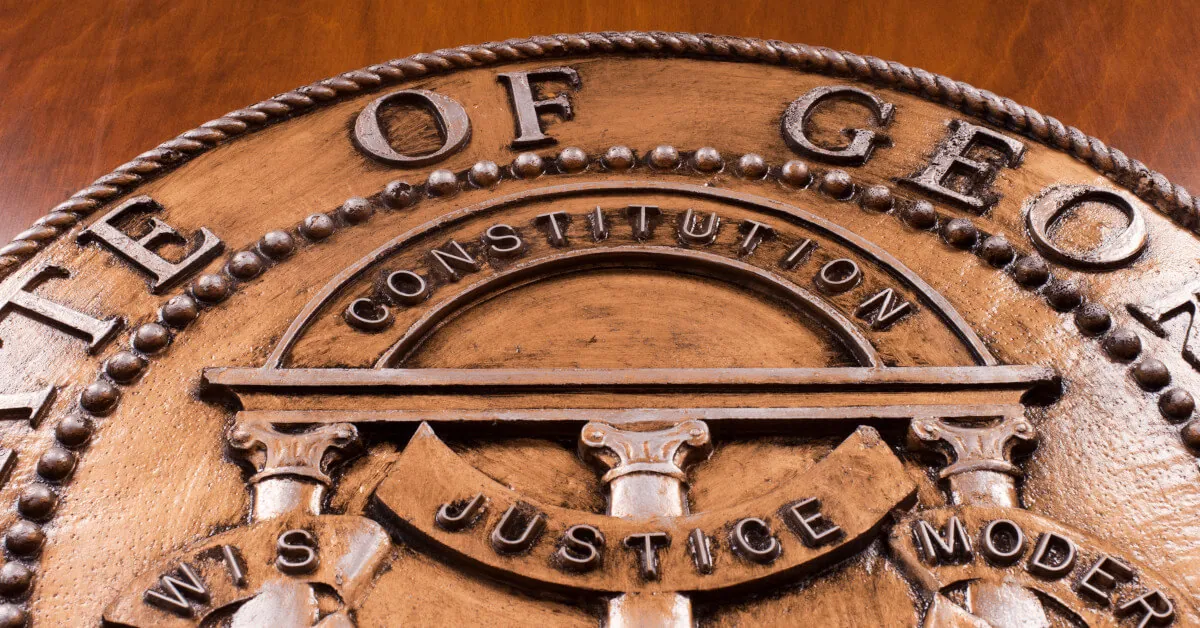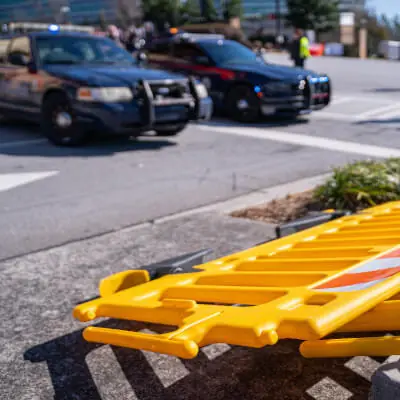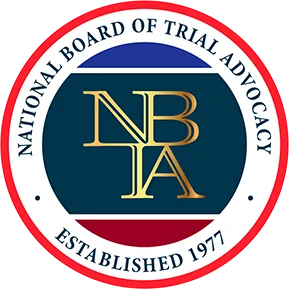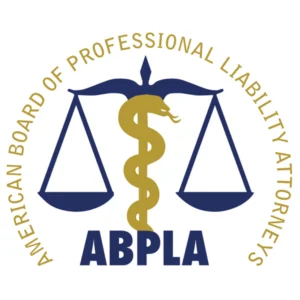By McArthur Law Firm – Georgia Personal Injury Attorneys
Why Georgia Negligence Law Matters
In the aftermath of an accident, you might wonder, “Do I have a legal case?” or “Was someone else responsible for what happened to me?” The answer often comes down to negligence. Georgia’s negligence laws form the legal backbone of most personal injury cases, from car crashes and slip-and-falls to medical malpractice and wrongful death claims.
Understanding how Georgia defines and applies negligence is essential if you’ve been injured. But the reality is, these laws are complex. You need a skilled Georgia personal injury attorney who knows how to navigate the nuances, build a strong case, and fight for full and fair compensation.
If you’d like to learn more about Georgia negligence law and see if you have a case, call one of our office locations below:
- Atlanta Office: 404-565-1621
- Macon Office: 478-238-6600
- Warner Robins Office: 478-551-9901
You can also fill out our online contact form to get a free consultation anytime.
What Is Negligence According To Georgia Law?
Negligence is a legal doctrine used to determine fault when one party’s careless or reckless actions cause harm to another. In Georgia, a person is considered negligent when they fail to exercise “ordinary diligence“—the level of caution a reasonable person would use under similar circumstances.
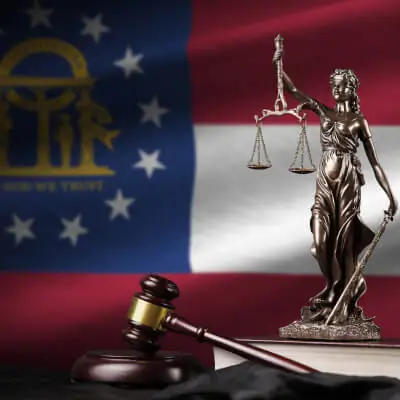
- Duty of Care: The defendant had a legal obligation to act with reasonable care.
- Breach of Duty: The defendant violated that duty through action or inaction.
- Causation: That breach directly caused your injuries.
- Damages: You suffered measurable harm (physical, emotional, financial).
Each of these elements must be backed by strong evidence, which is why working with an experienced personal injury attorney is critical.
Types of Negligence Recognized in Georgia
Georgia recognizes multiple types of negligence. These legal classifications can dramatically impact the outcome of a personal injury case:
1. Ordinary Negligence
This is the most common type of negligence. It applies when someone fails to act with the level of care that a reasonable person would have under the circumstances.
Examples:
- A distracted driver causing a car accident
- A store owner not cleaning up a spill, leading to a customer’s fall
2. Gross Negligence
This goes beyond ordinary carelessness—it involves extreme indifference to or reckless disregard for the safety of others.
Examples:
- A drunk driver speeding through a school zone
- A nursing home staff member willfully neglecting a resident’s medical needs
Gross negligence can open the door to punitive damages under Georgia law, which are designed to punish and deter egregious misconduct.
3. Comparative Negligence
Georgia follows a modified comparative fault rule. This means:
- If you are less than 50% at fault, you can still recover damages—though your compensation is reduced by your percentage of fault.
- If you are 50% or more at fault, you cannot recover anything.
Example: If you were injured in a car accident and found to be 20% at fault, and your damages were $100,000, you would still be able to recover $80,000.
Types of Personal Injury Cases Involving Negligence in Georgia
Negligence law is at the core of most personal injury cases. Below are common scenarios where Georgia residents may need to assert their rights under these laws:
Auto Accidents
Car, truck, and motorcycle accidents are among the leading causes of personal injury claims. Proving negligence may involve showing distracted driving, speeding, or violations of Georgia traffic laws.
Premises Liability
These cases involve unsafe property conditions. Georgia law (O.C.G.A. § 51-3-1) holds property owners liable if they fail to maintain safe premises for lawful visitors.
Some of the most common claims for premises liability cases in Georgia include:
- Slip and falls
- Inadequate security
- Dog bites
Medical Malpractice
When a healthcare provider fails to meet the standard of care and causes injury, they may be liable for negligence. Georgia has specific procedural requirements for malpractice claims, including a mandatory expert affidavit.
Product Liability
Manufacturers can be held responsible if a defective product causes harm. Georgia law permits claims under strict liability, negligence, or breach of warranty.
Wrongful Death
If someone dies due to another’s negligent act, the surviving family members may file a wrongful death lawsuit. Compensation may include lost wages, companionship, and funeral costs.
Georgia’s Statute of Limitations for Negligence Cases
The time to file a lawsuit is limited. In Georgia:
- Personal Injury – While there may be some exceptions, you generally have 2 years from the date of the injury.
- Medical Malpractice – Also 2 years, but with some exceptions for discovery and a 5-year statute of repose.
- Property Damage – You have up to 4 years (O.C.G.A. § 9-3-31).
Missing the statute of limitations usually means losing your right to compensation forever. An attorney can ensure deadlines are met and claims are filed on time.
How Negligence Laws Affect Compensation
Understanding Georgia’s negligence rules is essential when calculating damages. Compensation may include:
| Category | What It Covers |
|---|---|
| Medical Expenses | ER visits, hospital bills, surgeries, rehab, prescriptions |
| Lost Wages | Income lost due to missed work during recovery |
| Loss of Earning Capacity | Reduced ability to earn in the future due to permanent injuries |
| Pain and Suffering | Physical pain, emotional distress, PTSD |
| Property Damage | Repairs or replacement of damaged property (vehicles, etc.) |
| Punitive Damages | Available in cases of gross negligence or intentional harm (O.C.G.A. § 51-12-5.1) |
A qualified Georgia personal injury attorney will know how to document and calculate each of these categories, maximizing your total recovery.
The Role of Insurance and Settlement Negotiations
Most personal injury claims involve insurance companies. But insurers are not on your side—they aim to pay as little as possible. They may:
- Deny liability
- Undervalue damages
- Delay processing your claim
- Blame you for the accident
This is where legal representation becomes invaluable. Your attorney will handle communications, collect evidence, and negotiate aggressively for a fair settlement. If necessary, they’ll take the case to trial.
Why You Need a Georgia Personal Injury Lawyer
Georgia negligence law is intricate. Making even a small error—such as missing a filing deadline or accepting a low settlement—can cost you your case. Here’s how an experienced personal injury lawyer can help:

They’ll assess your situation to determine if you have a valid claim under Georgia’s negligence laws.
✅ Gather Critical Evidence
This includes police reports, medical records, eyewitness accounts, surveillance footage, and expert opinions.
✅ Navigate Comparative Fault
They’ll build a strategy to minimize your share of fault and maximize your compensation.
✅ Negotiate With Insurance
Your attorney will know how to counter lowball offers and push for the compensation you deserve.
✅ Go to Trial if Necessary
If settlement talks fail, a trial-tested attorney can argue your case before a Georgia jury.
McArthur Law Firm: Fighting for Justice Across Georgia
At McArthur Law Firm, our Georgia personal injury attorneys have decades of experience holding negligent parties accountable. We’ve recovered millions for clients in:
- Car and truck accidents
- Premises liability claims
- Catastrophic injuries
- Wrongful death lawsuits
- Medical malpractice cases
We handle the legal complexities so you can focus on healing. We offer free consultations and don’t charge legal fees unless we win your case.
Don’t Navigate Georgia Negligence Law Alone
Negligence law in Georgia is complex, and the stakes are high. Whether you’re dealing with medical bills, lost wages, or life-altering injuries, you deserve experienced legal guidance. Understanding your rights is the first step—but enforcing them takes legal firepower.
Let the Georgia personal injury attorneys at McArthur Law Firm fight for the compensation and accountability you deserve.
Call one of our office locations today to talk to an experienced personal injury attorney for a free consultation.
- Atlanta Office: 404-565-1621
- Macon Office: 478-238-6600
- Warner Robins Office: 478-551-9901
More Information About Negligence Laws in Georgia
If you’d like to learn more about Georgia negligence laws and how we can help you navigate them, read some of our informative articles below.



